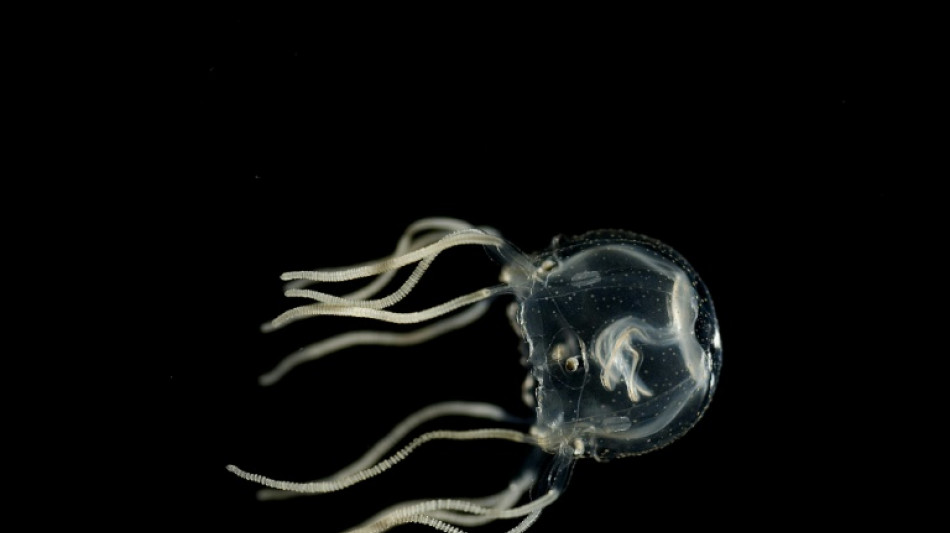
-
 From the Andes to Darfur: Colombians lured to Sudan's killing fields
From the Andes to Darfur: Colombians lured to Sudan's killing fields
-
Eagles win division as Commanders clash descends into brawl

-
 US again seizes oil tanker off coast of Venezuela
US again seizes oil tanker off coast of Venezuela
-
New Zealand 35-0, lead by 190, after racing through West Indies tail

-
 West Indies 420 all out to trail New Zealand by 155
West Indies 420 all out to trail New Zealand by 155
-
Arteta tells leaders Arsenal to 'learn' while winning

-
 Honour to match idol Ronaldo's Real Madrid calendar year goal record: Mbappe
Honour to match idol Ronaldo's Real Madrid calendar year goal record: Mbappe
-
Dupont helps Toulouse bounce back in Top 14 after turbulent week

-
 Mbappe matches Ronaldo record as Real Madrid beat Sevilla
Mbappe matches Ronaldo record as Real Madrid beat Sevilla
-
Gyokeres ends drought to gift Arsenal top spot for Christmas

-
 Arsenal stay top despite Man City win, Liverpool beat nine-man Spurs
Arsenal stay top despite Man City win, Liverpool beat nine-man Spurs
-
US intercepts oil tanker off coast of Venezuela

-
 PSG cruise past fifth-tier Fontenay in French Cup
PSG cruise past fifth-tier Fontenay in French Cup
-
Isak injury leaves Slot counting cost of Liverpool win at Spurs

-
 Juve beat Roma to close in on Serie A leaders Inter
Juve beat Roma to close in on Serie A leaders Inter
-
US intercepts oil tanker off coast of Venezuela: US media

-
 Haaland sends Man City top, Liverpool beat nine-man Spurs
Haaland sends Man City top, Liverpool beat nine-man Spurs
-
Epstein victims, lawmakers criticize partial release and redactions

-
 Leverkusen beat Leipzig to move third in Bundesliga
Leverkusen beat Leipzig to move third in Bundesliga
-
Lakers guard Smart fined $35,000 for swearing at refs

-
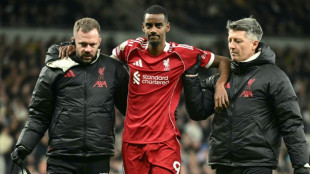 Liverpool sink nine-man Spurs but Isak limps off after rare goal
Liverpool sink nine-man Spurs but Isak limps off after rare goal
-
Guardiola urges Man City to 'improve' after dispatching West Ham

-
 Syria monitor says US strikes killed at least five IS members
Syria monitor says US strikes killed at least five IS members
-
Australia stops in silence for Bondi Beach shooting victims

-
 Olympic champion Joseph helps Perpignan to first Top 14 win despite red card
Olympic champion Joseph helps Perpignan to first Top 14 win despite red card
-
Zelensky says US mooted direct Ukraine-Russia talks on ending war

-
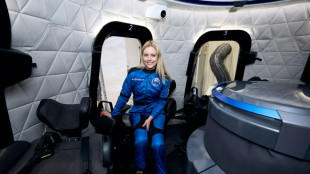 Wheelchair user flies into space, a first
Wheelchair user flies into space, a first
-
Brazil's Lula, Argentina's Milei clash over Venezuela at Mercosur summit

-
 Haaland sends Man City top, Chelsea fightback frustrates Newcastle
Haaland sends Man City top, Chelsea fightback frustrates Newcastle
-
Thailand on top at SEA Games clouded by border conflict

-
 Chelsea chaos not a distraction for Maresca
Chelsea chaos not a distraction for Maresca
-
Brazil's Lula asks EU to show 'courage' and sign Mercosur trade deal

-
 Africa Cup of Nations to be held every four years after 2028 edition
Africa Cup of Nations to be held every four years after 2028 edition
-
Zelensky says US mooted direct Ukraine-Russia talks on ending war in Miami

-
 Armed conflict in Venezuela would be 'humanitarian catastrophe': Lula
Armed conflict in Venezuela would be 'humanitarian catastrophe': Lula
-
Chelsea fightback in Newcastle draw eases pressure on Maresca

-
 FIFA Best XI 'a joke' rages Flick over Raphinha snub
FIFA Best XI 'a joke' rages Flick over Raphinha snub
-
Swiss Von Allmen pips Odermatt to Val Gardena downhill

-
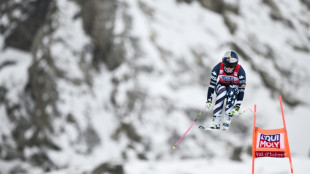 Vonn claims third podium of the season at Val d'Isere
Vonn claims third podium of the season at Val d'Isere
-
India drops Shubman Gill from T20 World Cup squad

-
 Tens of thousands attend funeral of killed Bangladesh student leader
Tens of thousands attend funeral of killed Bangladesh student leader
-
England 'flat' as Crawley admits Australia a better side

-
 Australia four wickets from Ashes glory as England cling on
Australia four wickets from Ashes glory as England cling on
-
Beetles block mining of Europe's biggest rare earths deposit

-
 French culture boss accused of mass drinks spiking to humiliate women
French culture boss accused of mass drinks spiking to humiliate women
-
Burning effigy, bamboo crafts at once-a-decade Hong Kong festival

-
 Joshua knocks out Paul to win Netflix boxing bout
Joshua knocks out Paul to win Netflix boxing bout
-
Dogged Hodge ton sees West Indies save follow-on against New Zealand

-
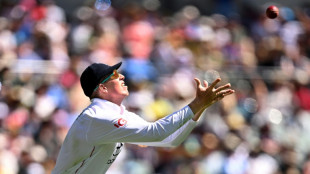 England dig in as they chase a record 435 to keep Ashes alive
England dig in as they chase a record 435 to keep Ashes alive
-
Wembanyama 26-point bench cameo takes Spurs to Hawks win


No brain, no problem: Tiny jellyfish can learn from experience
Caribbean box jellyfish are barely a centimetre long and have no brain.
But these gelatinous, fingernail-sized creatures are capable of learning from visual cues to avoid swimming into obstacles -- a cognitive ability never before seen in animals with such a primitive nervous system, researchers said on Friday.
Their performance of what is called "associative learning" is comparable to far more advanced animals such as fruit flies or mice, which have the notable benefit of having a brain, the researchers said.
The Caribbean box jellyfish, or Tripedalia cystophora, is known to be able to navigate through murky water and a maze of submerged mangrove roots.
These scenarios throw up plenty of dangers that could damage the jellyfish's fragile gelatinous membrane which envelops its bell-shaped body.
But they avoid harm thanks to four visual sensory centres called rhopalia, each of which has lens-shaped eyes and around a thousand neurons.
For comparison, fruit flies are packing 200,000 neurons in their tiny brains.
Cnidarians -- the animal group which includes jellyfish, sea anemones and coral -- are brainless, instead getting by with a "dispersed" central nervous system.
Despite this considerable disadvantage, the Caribbean box jellyfish responds to what is called "operant conditioning," according to the study in the journal Current Biology.
This means they can be trained to "predict a future problem and try to avoid it," said Anders Garm, a marine biologist at the University of Copenhagen and the study's lead author.
Garm told AFP that this capacity is "more complex than classical conditioning," which is best known for Russian neurologist Ivan Pavlov's experiments showing that dogs cannot help but salivate when they see their food bowl.
- 'Very intriguing' -
To test the jellyfish, the researchers put them in a small, water-filled tank with stripes of varying darkness on the glass walls to represent mangrove roots.
After a few bumps into the walls, the jellyfish quickly learned to move through the parts of the enclosures where the bars were least visible.
If the bars were made more prominent, the jellyfish never hit the walls, remaining safely in the centre of the tank. However this was not ideal for scrounging around for food.
If the stripes were removed entirely, the jellyfish constantly ran into the walls of the tank.
"If you separate the two stimuli, there is no learning," Garm concluded.
The jellyfish learned their lesson in between three to six tries, "which is basically the same amount of trials for what we would normally consider an advanced animal, like a fruit fly, a crab or even a mouse," he said.
They said their research supports the theory that even animals with a very small number of neurons are capable of learning.
That such a simple organism is able to achieve this feat "points to the very intriguing fact that this may be a fundamental property of nerve systems," Garm said.
Cnidarians are a "sister group" to the animal group that includes most other animals -- including humans.
Garm suggested that some 500 million years ago, a common ancestor of the two groups could have developed a nervous system that was already able to learn by association.
M.Fischer--AMWN



